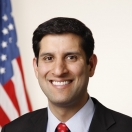
What if senior management in an Agency – or anyone in the public – could identify and monitor the performance of IT projects just as easily as they could monitor the stock market or baseball scores? That’s what the IT dashboard does -- and it’s changing the way government does business.
Government IT projects all too often cost millions of dollars more than they should, take years longer than necessary to deploy, and deliver technologies that are obsolete by the time they are completed. Colossal failures have contributed to a significant technology gap between the public and private sector which results in dollars wasted and a government that is less responsive to the American people. To close the technology gap, cut waste, and modernize government, the Obama Administration is taking concrete steps to deliver better results for the American people.
In June 2009, we launched the IT Dashboard, which empowers the American people to monitor $80 billion of IT investments across the Federal government and shines light into government operations, and today we’re launching IT Dashboard 2.0 which represents the next major leap forward in transparency, performance and accessibility of the Federal IT portfolio. Now available in both standard and mobile versions, the new IT Dashboard delivers faster navigation and more ways to see and explore Federal IT investments, providing greater access to a broader set of data than ever before.
The information uncovered through the Dashboard will be used by OMB in TechStat Accountability Sessions. Since January, we have held 30 sessions in which we review over-budget or overdue projects in depth with those overseeing them. The results have been encouraging. We’ve been able to reform projects – and cut the fat. In one such session, the Small Business Administration was able to reduce the cost to issue a Personal Identity Verification (PIV) smartcard from $1,641 per card to $240 per card.
These sessions and the Dashboard are part of a larger effort to reform Federal IT as we modernize government. Two weeks ago, we took three steps that will help us toward this goal. First, we are undertaking detailed reviews of troubled IT projects across the Federal Government. Second, we directed executive departments and agencies to refrain from awarding new task orders or contracts for financial system modernization projects. Third, we will develop recommendations for improving the Federal Government’s IT procurement and management practices within 120 days and in consultation with agencies. Already, VA has announced that they are terminating their current financial system project, and as a result, will defer a planned investment of $400 million.
Being smarter in how we invest in technology can help us make sure that government is both more efficient and more effective. That is why CIOs across the Federal government are focused on making sure that we halt, terminate or turnaround troubled technology investments and develop recommendations in the next four months to address structural issues that for too long have plagued Federal IT.
Vivek Kundra is U. S. Chief Information Officer


